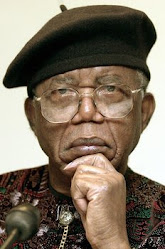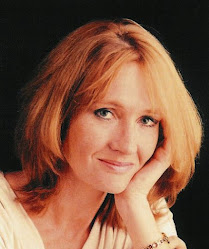 Onyeka Nwelue's debut novel The Abyssinian Boy, published by Dada Books will be in bookstores soon. The Book Launch will hold at The National Library, Yaba on the 24th of January, 2009 by 12 noon. The book launch is open to the general public, so try to be there.
Onyeka Nwelue's debut novel The Abyssinian Boy, published by Dada Books will be in bookstores soon. The Book Launch will hold at The National Library, Yaba on the 24th of January, 2009 by 12 noon. The book launch is open to the general public, so try to be there.Onyeka has been so busy with preparations, I could only interview him via email. Enjoy!
1) Tell us how you felt when you held a copy of your book
ON: I felt like no one existed, except me and the book. I wanted to cry. I wanted to hold anyone I saw and say, ‘Na me write this. You don read am. You fit write am?’ (Laughs)
2) Who would you say are your literary influences?
ON: I have a lot of influences. Wole Soyinka was my earlier influence. At the moment, I look to Salman Rushdie, Arundhati Roy and Ian McEwan. Mr. McEwan makes British writing seem unBritish; anyone can connect with his humour. Roy and Rushdie just shaped Indian writing in English. And they are fantastic!
3) Tell us about The Abyssinian Boy.
 ON: The Abyssinian Boy is my own tale about people navigating between cultures; it’s my take on the things I like, the way I want the world to look like, because in my opinion, I believe that a writer’s work is his own imagination of the world and how he would want it to look like. It’s a simple story about a child who gets haunted by a ghost, how he gets inflicted with a brain illness and the struggle of alienation.
ON: The Abyssinian Boy is my own tale about people navigating between cultures; it’s my take on the things I like, the way I want the world to look like, because in my opinion, I believe that a writer’s work is his own imagination of the world and how he would want it to look like. It’s a simple story about a child who gets haunted by a ghost, how he gets inflicted with a brain illness and the struggle of alienation.4) You’re twenty-one. I know a lot of your peers who live solely for parties, girls, booze and getting a college degree. What helped you focus on this project some people might consider intimidating, emotion sapping, time consuming and “boring”?
ON: (Laughs) I also ‘live’ for parties, girls, booze and a college degree. But the thing is that I don’t let those things distract me from my ‘profession’. This is what I want to do for eternity- writing full-time. And yes, writing a novel could be ‘boring’ for some writers as they have said, but for one single moment, I never felt bored writing my novel, delving into the world of the dwarves, watching David frown and smile, seeing Swathi make her jams everyday and Vimala ‘sashaying’. I wouldn’t agree with the claim that writing a novel is intimidating, emotion sapping and time consuming; I think you can say that when you are forced to write. No one can do that to me. I’m always true to myself and follow my heartbeat.
5) Writers all over the country often ask how to get published, what’s your answer to that question now?
ON: My answer is that they should persevere and be patient. I know this is an old clichéd saying, but I think that’s that.
6) What do you think about self-publishing, knowing its ill effects and given that it helped Helon Habila get his book noticed?
ON: Self-publishing is very good, if you can’t persevere or can’t be patient. But in a way it degrades the writer in the eyes of the reader, like the reader is being forced to read your sister? While the standard method of publishing is you waiting for that publishing house to take years to respond to you and if you are fortunate you’d be accepted. In self-publishing, the writer takes up the whole task of designing layout, formatting the book, printing, marketing and doing all what not, which is not easy. I do praise the writers who tread that path.
7) Name two books you’ve read a second time.
ON: Unfortunately, I’ve read The God of Small Things by Arundhati Roy over 50 times. (Laughs) And recently, I’ve been addicted to Amit Chaudhuri’s A strange and Sublime Address. I have read it more than five times.
8) What do you think about Music, Life, Love and Books?
ON: I think of Music as Life. Music inspired most parts of my novel and while I was tapping away on my laptop, I listened to all tracks in Timaya’s first album. They helped me keep track of where I wanted to get with this book. And then, there’s this particular Hindi song, ‘Agar Tum Mil Jao’, that made me feel that Life is not only Love, but Music.
9) What do you think of writers in Blogville? Any words for them?
ON: I think of them as writers who don’t follow rules, which is good. Words for them? Well, I can only say: keep writing and perfecting your art!
10) What’s NEXT?
ON: Let me present it to public first, then I will know what’s next, if anyone would be buying me a car. (laughs). And then, I will polish my handwriting for autographs and learn how to talk politely to girls. And then, write that ‘idyllic’ Nsukka story I always wanted to write.
10) What’s NEXT?
ON: Let me present it to public first, then I will know what’s next, if anyone would be buying me a car. (laughs). And then, I will polish my handwriting for autographs and learn how to talk politely to girls. And then, write that ‘idyllic’ Nsukka story I always wanted to write.




















He's going places. I like his drive! Writing is passion; it is mystery; it's surrealism; it's creativity; it's like air. With writers like Onyeka, youths are bound to see African literature as something fun and educative in an informative manner rather than an educational obligation. Onyeka is setting a pace for youths and reminding the elders we are truly the leaders of tomorrow; we are already to take the lead and secure a better future. Onyeka makes me proud, I can boast and use him as example of great Nigerians achieving things. I wish him best of luck in his career and I know he's here to stay. More grease to your elbow, Onyeka!
ReplyDelete@ Latifa
ReplyDeleteThanks for commenting. If I try hard, hopefully someone will write this sort of comment about Me.(chuckle). Thank You.
Thanks for the effort you put into making content helpful and informative. Read this profile for more. Clics Por Segundo is an enjoyable way to check speed online.
ReplyDelete